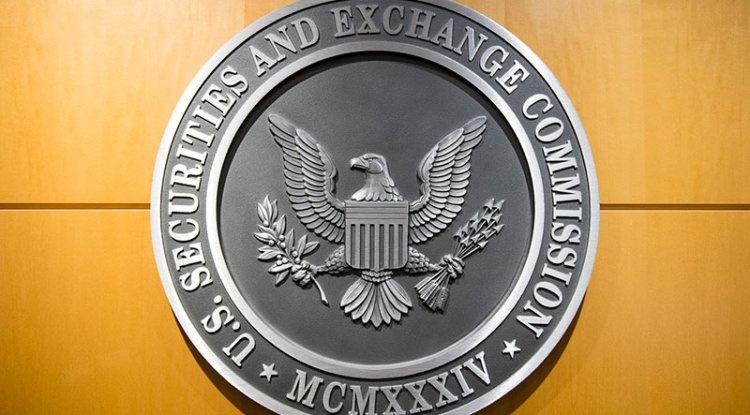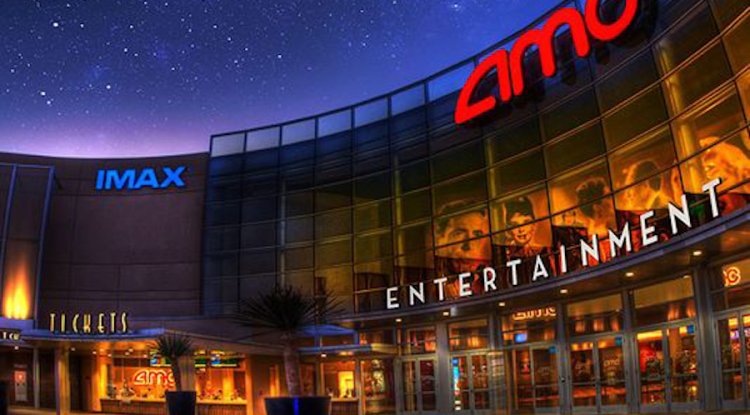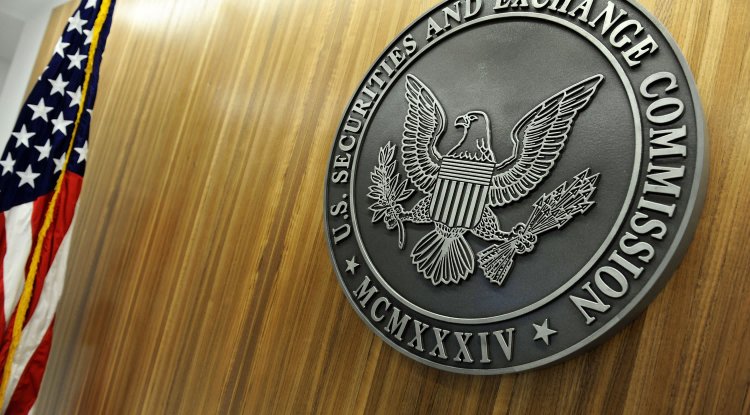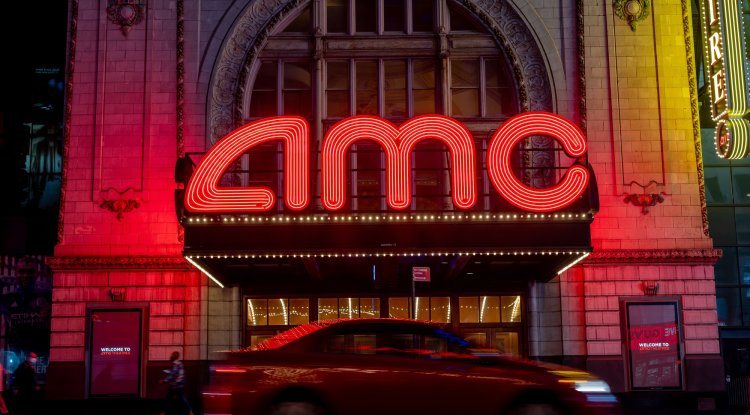Unmasked: FINRA - The Shameless and Corrupt Wall Street Watchdog Concealing its Partiality
Uncover FINRA's partiality and corruption as a supposed Wall Street watchdog. Don't be deceived by their impartial facade any longer

FINRA, with its convoluted acronym and fancy-sounding terms like 'regulatory oversight,' gives off the impression of being a powerful and authoritative organization. But for those who are not in the know, it's easy to be deceived by this facade. However, the truth of their power and authority is a bit more complicated than meets the eye, and we'll explore that in detail.
The reality of FINRA is that it operates as a privately-owned enterprise formed as a consortium of broker-dealers. This private corporation not only regulates its members but is also incorporated and owned by them.

Well, well, well, look who's regulating themselves over at FINRA! Oh, what could go wrong when you let the foxes guard the henhouse? I mean, it's not like there's any conflict of freaking interest or anything. Nope, not at all. Just a private corporation made up of broker-dealers, owning and regulating themselves. Sounds like a real recipe for fair and impartial oversight, doesn't it?
Oh boy, FINRA is a Self Regulatory Organization (SRO), which means they're all about self-reporting. That's right, they want their members to confess their wrongdoings all on their own. I mean, who wouldn't willingly tattle on themselves, right? It's like asking a criminal to voluntarily turn themselves in. Genius!
At present, FINRA's method of identifying the culprits responsible for Reg SHO close-out requirement failures is a delightful game of phone tag where they manually reach out to member firms and plead for assistance in tracking down the brokerage firms accountable.
Relevant Quote;
“I have long maintained that a self-regulatory model for monitoring Wall Street does not and will not work. To think that the brokerage industry could be properly monitored by an organization that it funds in large measure strikes me as ridiculous.” –Larry Doyle 23+ year Wall Street Veteran
Countless individuals within the financial industry have devoted their careers and livelihoods to creating wealth, not only for themselves but also for others. Through hard work, they have managed to fund college educations, purchase homes, and save for retirement, all while striving to uphold the highest ideals and practices of the free market system. However, despite their unwavering dedication, they often find themselves at the mercy of corrupt and extralegal means that deny them their due process rights under the law.
For these professionals in the financial industry, the specter of potential consequences looms over them constantly. While advocating for stockbrokers may not be a cause that wins human rights awards, it is nonetheless essential to acknowledge that these individuals are living with a sense of uncertainty that permeates every aspect of their lives.
It may come as a surprise to many to learn that the supposed impartial watchdog of the United States financial industry is, in fact, a corrupt and underhanded organization that does not even function as a full-fledged governmental agency. The Financial Industry National Regulatory Authority (FINRA), is tasked with regulating the financial industry but frequently engages in shady practices that strip hard-working individuals of their livelihoods, sometimes permanently.
Therefore, it is crucial to shine a light on the unjust practices of FINRA to ensure that the people who work in the financial industry are protected and treated fairly. Their careers and livelihoods are at stake, and it is only right that they are given the due process they deserve.
The Corrupt Watchdog: Uncovering FINRA's Need for Self-Scrutiny
Assigned with the duty to safeguard the public from deceitful stockbrokers and bond traders, FINRA is a semi-governmental organization that employs an unconstitutional resolution process to settle cases of suspected misconduct. Proclaiming to have Main Street's interests at heart, FINRA obtains its authority from the Securities and Exchange Commission (SEC) and then utilizes unscrupulous means to execute its duties.
Despite being an influential body that supposedly resolves financial industry regulations and disputes, a vast majority of Americans may not be aware of FINRA's existence. Nearly 600,000 financial professionals in the country, known as registered persons, can lose their ability to conduct business and earn a living from their profession if FINRA detects them engaging in illegal activities.
To do any business in the industry, individuals or firms (also known as broker-dealers) must agree to and comply with FINRA's corrupted and extralegal dispute resolution and authorization process. If FINRA discovers any wrongdoing by the registered person or the firm, the agency-appointed members may impose penalties or fines.
FINRA enforces regulations and investigates individuals or firms in two ways: through regular reviews or audits. Investigations can be initiated through information provided by whistleblowers or tipsters, who can earn substantial rewards for this information.
After a complaint is lodged against a broker-dealer or registered person, a FINRA employee will appoint a Hearing Panel composed of three members, chaired by a Hearing Officer, an attorney designated by FINRA. The Hearing Panel will then assess the case and provide a verdict.
After a verdict is issued, there is an option to appeal the sanctions. However, the problem is that the case will be reviewed by the National Adjudicatory Council (NAC), which is a part of FINRA.
Now, some may argue that broker-dealers must comply with the regulations, so what's the issue? The problem is that it doesn't stop there.
If a case is filed against a registered person and a decision is reached, the individual has two options to continue working in the industry: either accept the penalty, which can result in a lifetime ban, or quit the business altogether. In what world is that a reasonable decision-making process?
FINRA's Profit-Driven Agenda: The False Facade of a Non-Profit Organization
With powers granted by the Securities and Exchange Commission, FINRA has become a formidable force in the financial industry. Unfortunately, this self-proclaimed watchdog appears to be more of a lapdog to its appointed arbitrators, siding with them in almost every case.
For those who feel wrongly accused of any misconduct, the appeals process is nothing short of an uphill battle. It can take up to two years to exhaust all avenues of appeal, with the SEC serving as the final arbiter. In the meantime, accused individuals may have their chosen profession and primary source of income stripped away by FINRA, with little recourse for recourse or reparation.
While the SEC may affirm, modify, or dismiss any findings or sanctions imposed by FINRA's National Adjudicatory Council (NAC), it cannot increase sanctions. The lengthy process of applying for review with the SEC often results in an individual being unable to earn from their profession, leaving them in a difficult financial situation.
Appeals may be pending review in one of the United States Courts of Appeals, prolonging the already lengthy process. This broken system of justice leaves many financial professionals feeling powerless and at the mercy of FINRA's unchecked authority.
In America, we hold the Bill of Rights in high regard, and among its most important aspects are the Fifth and Fourteenth Amendments of the U.S. Constitution, which guarantee every accused individual the right to due process, protection against self-incrimination, and access to a fair, balanced, and prompt dispute resolution and arbitration system. These fundamental rights are so essential that any law student worth their salt would never overlook them. Yet, it appears that FINRA, the organization that is supposed to uphold these rights, has chosen to turn a blind eye to them.
It is challenging to argue that this convoluted and time-consuming process is impartial, timely, or respectful of the due process protections that are enshrined in our Constitution.
MMTLP Scandal
The MMTLP scandal reveals that market makers, who are paid by hedge funds to add liquidity to the markets, and regulatory bodies such as FINRA, which were established to safeguard investors, have been colluding for years to shield criminal practices like naked shorting from investors. This collusion may even constitute a violation of the Racketeer Influenced and Corrupt Organizations (RICO) Act.
In the case of MMTLP, hundreds of millions, possibly billions, of fake shares were created for naked shorting, to close them within two days at any price available. However, FINRA halted all trading, thereby shielding short hedge funds from having to pay out billions of dollars to investors.
The MMTLP scandal is currently considered to be one of the most significant instances of fraud on Wall Street in the last decade.
More recently, there has been a scandal involving the "meme stock" craze, where brokerage firms, hedge funds, and even regulators colluded to prevent stocks such as AMC and GameStop from increasing in value.
Investors who held shares of MMTLP stock on December 12th were set to receive a preferred dividend of Next Bridge Hydrocarbon on December 14th.
Leading up to the spinoff, investors were hopeful for a long-awaited MMTLP short squeeze, as large buying volumes flooded the market to obtain Next Bridge Hydrocarbon shares.
However, MMTLP stock abruptly stopped trading on December 8th after FINRA delisted the security without prior notice or warning.
FINRA halted trading of MMTLP stock, citing vague concerns about "uncertainty" in the settlement process that could potentially harm investors and the public interest. However, shareholders have raised questions about whether FINRA's true motive was to protect the interests of their private investors and institutional partners, such as hedge funds, rather than those of retail investors.
Next Bridge Hydrocarbons issued a statement in response to the trading halt.
Timeline of events
February 2020
Torchlight Energy, trading under the symbol TRCH, was a NASDAQ-listed small-cap company with oil and gas assets. The company's primary asset was 97,500 acres of land located in Orogrande, Texas. According to their presentations, there were approximately 3.2 billion recoverable barrels of oil, as well as natural gas, located in Orogrande. Torchlight touted Orogrande as having the potential to be the most significant oil discovery on U.S. soil since the 1970s.
December 2020
Torchlight's stock price had been heavily shorted, plummeting to roughly $0.20 per share. The company was struggling to secure funding to drill wells on its land. In a bid to sell its oil assets, Torchlight's CEO, John Brda, proposed merging with another company listed on NASDAQ that had greater capital. The chosen partner for the merger was Metamaterials, a Canadian high-tech company.
Under the terms of the merger, TRCH shareholders would receive shares of the newly formed Metamaterials company (MMAT), as well as a special non-tradable dividend. This dividend would be converted to cash upon the sale or spinout of the oil and gas assets by MMAT.
June 2021
Following the completion of the TRCH to MMAT merger, TRCH shareholders received their special dividend. On June 21st, George Palikaras, the CEO of MMAT, announced that he had rejected an unsolicited offer of $500 million from a bank for Torchlight's oil and gas assets. It is worth noting that the special dividend consisted of 165,472,241 legally issued shares, which is essential information for investors.
June 2021
After the completion of the merger, the TRCH shorts were not closed as they should have been. According to FINRA's data on TradingView, there was a short volume of 30 million shares (worth approximately $150 million). Meanwhile, MMAT began trading, and TRCH stopped trading, with the dividend appearing in shareholders' accounts as a temporary non-tradeable placeholder, following the legal structure of the merger that was approved by the SEC. Unfortunately, for months, FINRA has allowed the creation of fake shares in the form of FTDs (Failed-to-Deliver shares), which are shares created out of thin air and are not settled, also known as illegal naked shorts.
October 2021
After the completion of the TRCH-MMAT merger, the MMTLP symbol emerged on OTC markets without Metamaterials and shareholders' knowledge or consent. Market makers GTSX and possibly Canaccord Genuity created MMTLP, which was contrary to the non-tradeable special dividend agreed upon in the merger documentation. These market makers did this to close their naked short position and hoped to incite panic selling. However, the opposite occurred as everyone held onto their shares and even bought more, causing the market makers to increase their naked short position on MMTLP until the last few days. Although some web links on OTC markets have been deleted, some users were able to take pictures while the links were still live. The market makers used false information and fake identities, including the name of Torchlight's former CEO and board members from 2012, to register MMTLP on OTC. It is suspected that one of these market makers sat on the FINRA security board, although there is no concrete proof of the individuals involved. Further information on this subject can be found by browsing the internet and Twitter.
October 2021
After the registration of MMTLP was approved by Finra and OTC Markets, John Brda, the former CEO of Torchlight, raised concerns about the fake information used to register the symbol and demanded that the trading be stopped. However, both Finra and OTC Markets disregarded his complaints and allowed trading to continue. It was only after several months that Metamaterials finally accepted that MMTLP was indeed the legal placeholder for their special dividend, even though they had never authorized its creation.
November 2022
Metamaterials (MMAT) announces that the Torchlight assets will be spun off into a private company called Next Bridge Hydrocarbons, which will not be tradeable on the stock market. The special dividend holders (MMTLP) will receive one Next Bridge share for each of the 165M emitted shares. In the S1 document, MMAT cautions that all short positions must be closed before the record date of the spin-off, or else a short squeeze, which is a rapid price increase, could occur. It is illegal to hold a short position in a private company, and any fake shorts in the market must be closed according to the legal rules of the SEC and FINRA. Shareholders are excited and estimate that a Next Bridge share could be worth between $40-75 due to the increase in oil prices and the large reserve of oil in Orogrande.
December 2022
After the TRCH-MMAT merger, shorts were carried over to MMTLP. However, FTDs or fake shares were still being created for MMTLP daily, as per short reports and the OTC threshold list. FINRA deleted the MMTLP symbol, but one can confirm that MMTLP was consistently on the OTC threshold list of FTDs by looking at the archives of FINRA (Reg SHO Threshold - Text Archives) before December 8th, 2022. Therefore, FINRA was allowing the creation of new illegal fake shares every day, and short sellers were increasing their unsettled short position, even though they knew they had to close all short positions before the spin-off years.
December 2022
MMAT had to undergo four revisions of their S1 document for the spin-off, requested by the SEC before it was finally approved and sent to FINRA for final approval. After a long wait, MMAT requested that FINRA approve the document promptly so that short positions could be closed in time. FINRA eventually approved the S1 corporate action on December 6th, with a few unusual wordings that would later be corrected. In the approved S1, there was a mention of a "Pay Date" on the 14th (which was meant to be the distribution date for Nextbridge shares), and it was stated that MMTLP shares would be "CANCELED" (an atypical term in the OTC market). According to FINRA (and the approved S1), MMTLP would continue trading until the 12th, but shares purchased after the 8th would not be eligible for a Nextbridge share - as expected.
Shortly after, Jeff Mendl, the Vice President of OTC Markets, appeared on television and announced that MMTLP would be removed soon due to its unusual trading volume, and warned that the final days of trading could be highly volatile.
On the afternoon of December 8th, Finra made an unexpected change to their wording in a new approval, stating that MMTLP would be DELETED instead of canceled. It's unclear why this change occurred, but some speculate that using the word "canceled" would have allowed the shorts to avoid closing their positions, leaving a large number of counterfeit shares unsettled. The last-minute change still indicated that trading would continue until the 12th, as planned by the S1, and purchases made after the 8th would not be entitled to the distribution. As a result, thousands of investors were waiting for the shorts to cover their positions in the final days of trading so that they could sell without having to go into Next Bridge or sell a portion of their shares.
December 2022
For the last two months, MMTLP has consistently been on the threshold list for naked shorts/FTDs. In the final days of trading, there was even more short selling, causing the price to drop from $12.90 to $2.90 at the close on December 8th. It was puzzling why there was such a massive shorting activity on the last day, given that some brokers showed that buyers were still in the majority, accounting for over 85% of transactions. The trading volume on the 8th reached 13 million shares, which was the highest trading day for MMTLP, except for the second day of trading (11 million shares).
December 9th 2022
This morning, shareholders were eagerly anticipating the closure of short positions following the SEC-approved S1 document and FINRA notices. Many had held their shares for two years since the TRCH merger, hoping for this day when shorts, especially the illegal ones, would be forced to settle their position before Nextbridge became a private company.
However, FINRA surprised everyone by halting the stock with an unusual U3 code indicating an extraordinary event, until the deletion of MMTLP. Moreover, the OTC market placed MMTLP on the Caveat Emptor list with a skull sign next to the symbol, making it impossible to trade for investors. Thousands of shareholders' money was left frozen in Nextbridge or trapped without any information, and they were left in the dark with cryptic and unexpected notices from FINRA.
The stock had been crushed to the ground by massive illegal shorts in the last moments of trading, and people were unable to sell their position or even trade when shorts were expected to close their position. There were likely hundreds, if not billions, of illegal short positions.
What's Your Reaction?







-
 John SmithIf your a Registered Representative and seeking to resolve a matter with Finra your going to have an up hill battle I was an advisor for 42 years never had a single client complaint when a state regulator put out a contract “hit” on my business that regulator was ultimately fired by the state but then went to work for Finra where they started the same “double jeapory” investigation as the whole branch audit lasted 6 years in the end I just quit the business as it could have cost me a $500,000 in attorneys fees. Once you become a registered representative you immediately loose most of your constitutional protection rights of due process double jeopardy , speedy trail, and freedom of speech they Finra actually put in my order I could not speak about the sham event cant say I blame then I would be embarrassed to it i were them. The B/D’s pay Firna close to 1 Billion a year in fines this so called non profit were its rumored the head of Finra makes $3.5 million a year, enough said!1 year ago Reply
John SmithIf your a Registered Representative and seeking to resolve a matter with Finra your going to have an up hill battle I was an advisor for 42 years never had a single client complaint when a state regulator put out a contract “hit” on my business that regulator was ultimately fired by the state but then went to work for Finra where they started the same “double jeapory” investigation as the whole branch audit lasted 6 years in the end I just quit the business as it could have cost me a $500,000 in attorneys fees. Once you become a registered representative you immediately loose most of your constitutional protection rights of due process double jeopardy , speedy trail, and freedom of speech they Finra actually put in my order I could not speak about the sham event cant say I blame then I would be embarrassed to it i were them. The B/D’s pay Firna close to 1 Billion a year in fines this so called non profit were its rumored the head of Finra makes $3.5 million a year, enough said!1 year ago Reply -
 Perry MurphyThank you for helping expose the truth the problem we all know 0ther than the 17 or so congress and senators that recently wrote to sec demanding answers themselves are a faint hope in a deep state massive level of corruption from the white house to each and evey one of its 3 letter supposed regulatory or law enforcement agencies its obvious globally yet we can get no justice2 years ago Reply
Perry MurphyThank you for helping expose the truth the problem we all know 0ther than the 17 or so congress and senators that recently wrote to sec demanding answers themselves are a faint hope in a deep state massive level of corruption from the white house to each and evey one of its 3 letter supposed regulatory or law enforcement agencies its obvious globally yet we can get no justice2 years ago Reply -
 TracyWell done. FINRA acts as its own police nothing good can come out of this. They have proven they will disregard the law for monetary gain and they are assured by the fact that the SEC will do nothing. Its out of control Corruption.3 years ago Reply
TracyWell done. FINRA acts as its own police nothing good can come out of this. They have proven they will disregard the law for monetary gain and they are assured by the fact that the SEC will do nothing. Its out of control Corruption.3 years ago Reply -
 Tom BecknerThanks, For your article, more and more of this corruption of MMTLP needs to be exposed !!!3 years ago Reply
Tom BecknerThanks, For your article, more and more of this corruption of MMTLP needs to be exposed !!!3 years ago Reply -
 Mitch KoffskySend this video to 20/20....let the world see it I for one have no faith anymore in the stock market and barely trade anymore...if a stock has a high short.....we all should take note and do the same3 years ago Reply
Mitch KoffskySend this video to 20/20....let the world see it I for one have no faith anymore in the stock market and barely trade anymore...if a stock has a high short.....we all should take note and do the same3 years ago Reply














